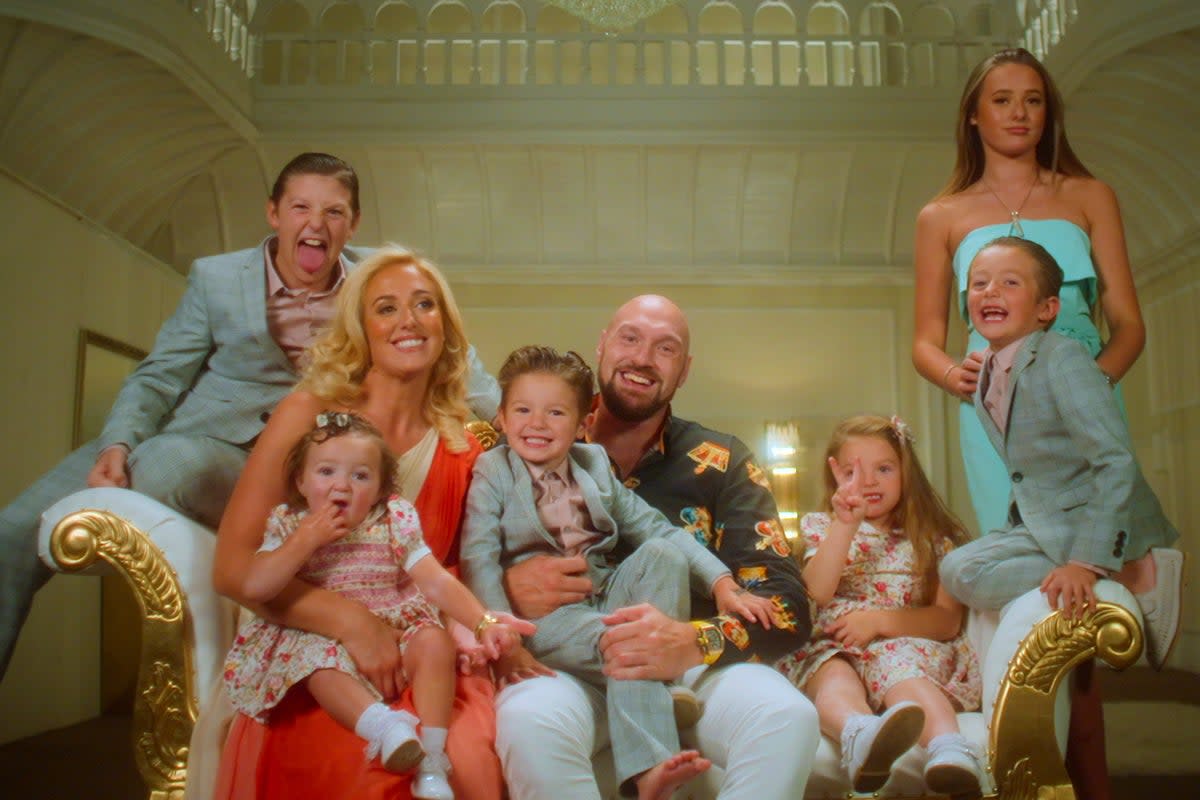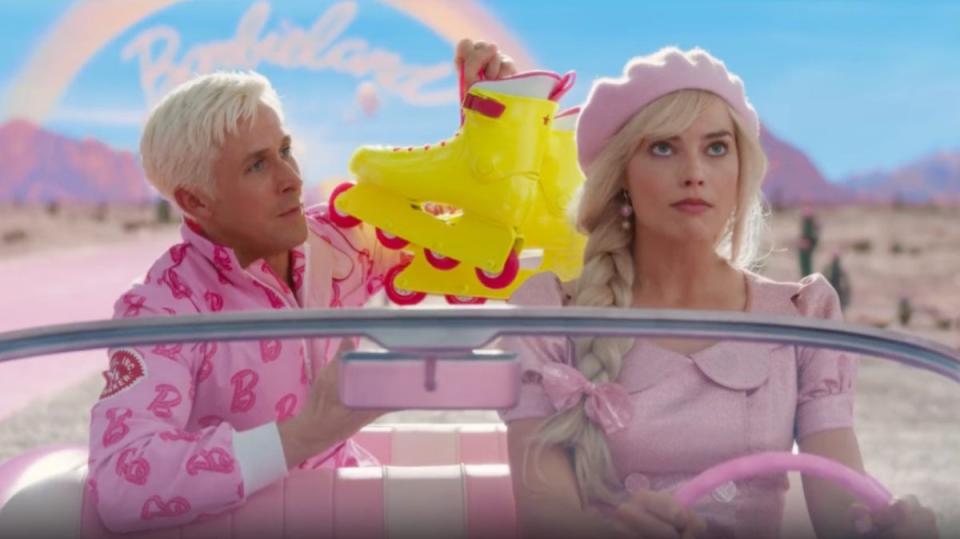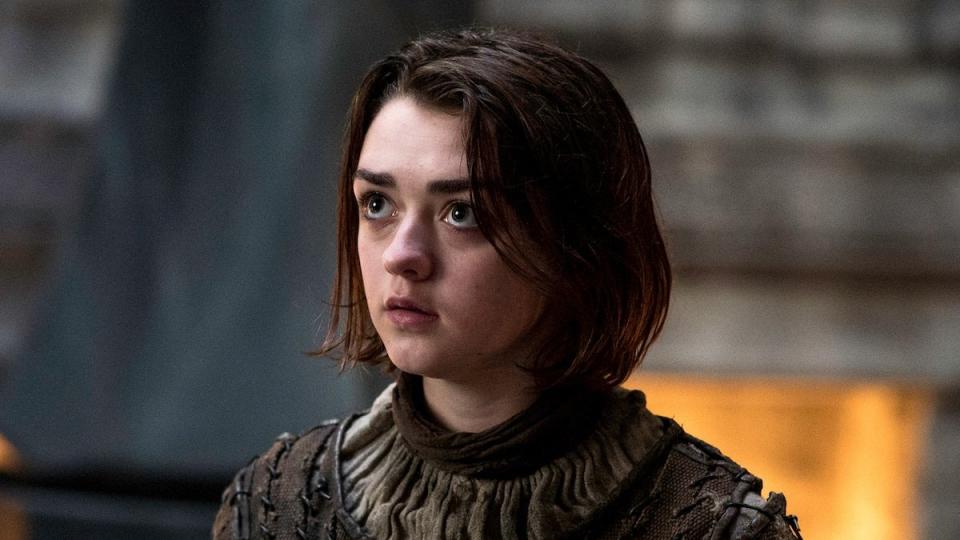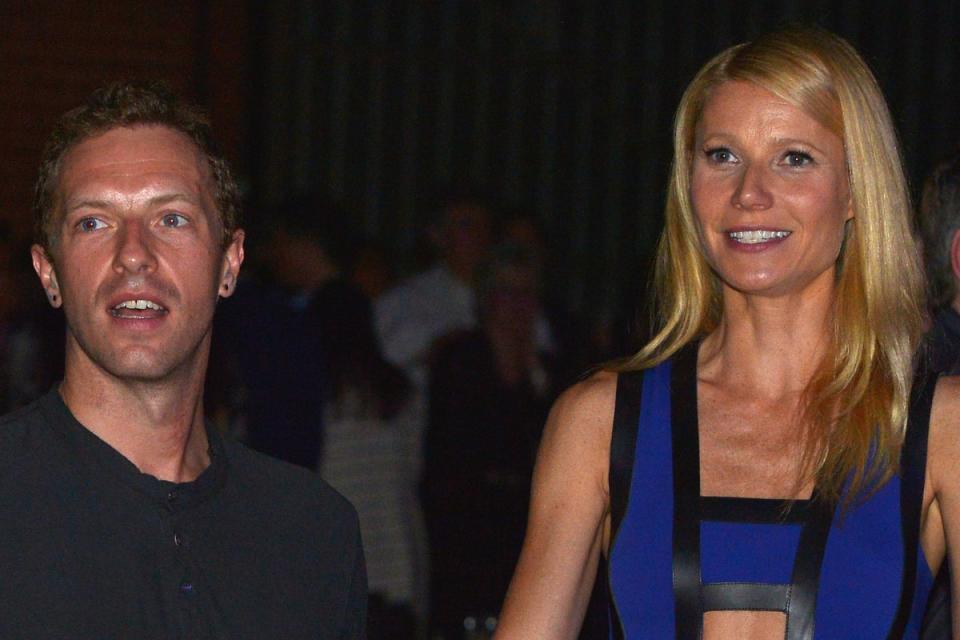Barbie? Ken? Venezuela?: Why baby names won’t be boring for much longer

When Juliet declared that a rose by any other name would smell as sweet, she was probably reading the Instagram comments beneath a celebrity baby name reveal. Earlier this year, influencer Molly-Mae Hague and her now fiancé Tommy Fury announced that their daughter was called Bambi. Cue an onslaught of ridicule, with Molly-Mae herself responding that it was a cruel reminder of “how nasty this world can be”. Her soon-to-be-brother-in-law, boxer Tyson Fury, may face similar backlash alongside the debut of his new reality show At Home with the Furys, which launched this week: in it, we meet Fury and his wife Paris’s seven children, whose names include Adonis, Valencia and Venezuela. One wonders what Juliet would make of recent stats showing interest in Barbie and Ken as baby names, following the huge success this summer of the-movie-that-isn’t-Oppenheimer.
So what is in a name? I decided to go directly to the source. Not Greta Gerwig, but Justine Roberts, CEO and founder of Mumsnet. “Our users have mixed views about unusual baby names,” she tells me. “Many parents angst over whether their choice may lead to teasing, but on the flip side life would be incredibly boring if we all opted for classic names. Ultimately, babies rapidly grow to fit their names; pretty soon it will be odd to think of little Barbie or Ken being named anything else.”

Of course, naming your child after a popular cultural moment is hardly new. Today’s Barbie is more or less like the ancient Greeks wanting to call their kids Oedipus or Antigone. Romeo and Juliet were probably popular in the late 16th century. “Pop culture can have a huge influence on names,” says Sophie Kihm, editor of Nameberry, the world’s largest baby name website. “Barbie will definitely have a moment. Last year we saw a huge surge in popularity for names of [American TV drama] Yellowstone characters, like Dutton. We’re also seeing a lot of anime names becoming popular, like when Game of Thrones names were trending.”
Despite the online criticism, the overarching movement is towards individuality. “Parents are wanting more and more unique names, they want their kid to be one of a kind to stand out,” says Kihn. “As a result, the name pool is widening and what we consider a name is ever expanding. We have these new names that are being introduced just as we have people uncovering old names from ancient languages and cultures, and putting them back into circulation.” Names are, of course, a product of the social and cultural mores in which they are chosen or created. Kihn is spot on when she notes that Western culture in particular is moving towards individualism: “In a way, it’s just a reverse of the first part of the 20th century, when there was more of a value placed on conforming and everyone following the same rules.”
PR executive Zoraida was, in fact, named according to these rules – named after her great Aunt, who was named after her mother and so on for about six generations. But growing up in the UK, Zoraida still found herself with a name that no one else seemed to have. “As a child, I used to be mildly upset never to see those mugs or pens with my name on,” she remembers. “Kids at primary school could also never spell it – Christmas cards would have ‘Zorro’ in them or various attempts scribbled out! Not a day would go past without someone asking me about it.” In fact, she even decided to go by her family nickname, Rae, when she went to university. “Now I realise how lucky I am to have such a different name and with family significance. If I had had kids, I would have passed it on.”

Illustrator and children’s author Anoosha Syed had such a similar experience to Zoraida that she wrote a book about it. That’s Not My Name tells the story of a girl named Mirha who is embarking on her first day at school, where she learns to stand up for her name. “It is the book I wish I had had growing up,” Syed tells me. “People get my name wrong all the time, but when I was a kid, it was even worse. I felt the need to change it to something easier, like Annie, just to fit in. It took a really long time for me to love it.”
Much like Zoraida, Anoosha’s name is not unusual at all – both are actually rather traditional names, just out of context during their respective childhoods in the UK and North America. Anoosha hopes that with increased multiculturalism, such differences will become meaningless.
We called him Wylder Artemis Fox. But he basically has to grow up to be a rock star now
“I definitely see this in school visits I am making now in Toronto,” she tells me. “Almost no one has the same name anymore. But that’s not to say that it’s still not hard for some kids to defend their names. I hope the book helps in that respect.”
That’s the thing about having a unique name – you flip a coin and hope that your child will find power in being different, and not be forced into a defensive position at a very vulnerable time of their lives. Cally, a magazine editor from London, was thankfully the former. “I really liked having an unusual name that people would comment on,” she says. “I think as a child it definitely made me feel special. I was never afraid to wear different clothes or express different opinions, because I saw individuality as a positive thing.” In fact, she liked having a unique name so much, she gave her son one.
“I always wanted a non-traditional name. So, we called him Wylder Artemis Fox, as a nod to nature, the Greek goddess and then my nickname for his dad,” she tells me. “But he basically has to grow up to be a rock star now, with a name like that.” Has she received any backlash? “Literally everyone he meets absolutely loves it and says so,” she says, adding with a laugh: “Except my husband’s parents!”
Ah, grandparents. A 2017 study showed that a fifth of them dislike their grandchild’s name. This is certainly the case for my family friends, who named their child Nemesis. They chose the name after being inspired by the Greek goddess of revenge, having wanted a “strong woman” name for their daughter. Sadly, not everyone is on board and her grandparents staunchly call her Mimi instead.

There are, of course, people for whom grandparent disapproval is not a red light but an incentive. “My mother-in-law always thinks I am too posh,” one Oxfordshire-based mother told me. “When I was pregnant with my son she said, ‘You’re going to name him something ridiculous, aren’t you, like Sebastian?’. So, yeah, I called him Sebastian.”
Not everyone is so expertly petty, but the deviation from traditional names which typically aggravates grandparents is itself a debatable phenomenon. For what constitutes a conventional name is forever changing. Today’s Emily may indeed be tomorrow’s Nemesis. “We often misunderstand a name’s history,” says Kihn. “Certain names have staying power and so we view them as traditional, but other names are just as historic they just have fallen out of fashion. Like Tiffany, we see that as a new name that is a bit of a celebrity fad when actually it has a long history. Luna is another one. It’s actually a really ancient name.”
But with the advent of individuality taking precedence when it comes to nomenclature, the very idea of an unusual name may become obsolete. “I think everyone’s thresholds for what is a ‘weird’ name is going to be just a lot higher,” says Kihn, who points to the fact that soon, the idea of male and female names may also become a thing of the past, as more and more parents use them interchangeably.
Yet, the very threshold encompasses all names, weird or otherwise, the idea that what we name our child must fit with an imagined chorus of approval – often of faceless people we have never met. When, in fact, respecting someone’s name means respecting who they are, no matter how strange you may find it. While it is tempting to posit this as a foundational stone in today’s so-called “identity politics” fracas, it’s actually just common decency.
“If someone struggles with my name because of accent or deafness or something like that, I get it, because at least they’re trying,” says Anoosha. “But when someone ridicules it or changes it for their own ease, that’s actually just rude. It’s as simple as that.”
So, if you see Barbie or Ken, or Adonis or Bambi in the playground, play nice. Because, when you think about it, why wouldn’t you?
‘At Home with the Furys’ is streaming on Netflix


